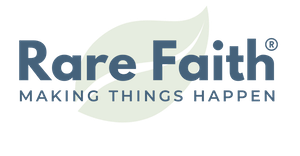
Another great question from one of my readers:
Hi Leslie,
I read your article TO DEBT OR NOT TO DEBT. It was an eye opener! Could you please explain what you meant by “there are two things worthy of debt: a home, and education.” Did you mean there is good debt and bad debt? The debt elimination teachers I’ve sat under say “there is no good debt, just bad debt, and to work hard to pay your home off early.”
(I know there are many schools of thought.)
And what about all the students who graduate from college drowning in debt, because they took out school loans, and are paying on them for years to come? (I hear their cries on several debt shows I listen to, many of these shows make you scared to death to use a credit card). I’m sorry to ask this question, but I guess I need a little more clarification if possible. Thank you for all you share to help us improve our lives….
– Ellie
At the time I responded to Ellie, my understanding of good debt and bad debt was superficial. I’ve since learned even better ways to look at it, so before I share my original response and my update since the Recession, I want to share with you a powerful article written by one of my mentors on the subject:
Increase Your Cash Flow by Understanding the Proper Definition of Debt
Garrett Gunderson
You’re taught in America that your home is your biggest asset. If that’s true, why do so many Americans fail to utilize their home as an income-producing asset?
The answer is because so many of us are limited by misunderstandings about debt. When we understand the correct definition of debt, we are able to unleash un-utilized potential to increase our production.
Can you give a clear definition of debt? We’re taught by financial pundits and religious leaders to avoid debt, but do we even know what debt is? How can we avoid something when we don’t know what we’re trying to avoid?
The most common definition of debt is any borrowed money, which is false. My friend Les McGuire, who spoke Japanese, used to teach this concept by telling people that they should avoid “tabemono” like the plague. The joke is that tabemono means food in Japanese, and the ironic point is that, first of all, by not knowing what it is we can never avoid it in the first place, and secondly, if we don’t know the correct definition of debt, we may be avoiding the very thing that is the most essential to our financial health.
So many people are avoiding “debt,” but not only do they not know what it is, they are also avoiding some of the most critical knowledge about finances that keeps them away from prosperity. Ironically, it’s also the knowledge that would help them get out of debt.
The True Definition of Debt
Contrary to the common definition, debt is the negative difference between liabilities and assets. It’s having more liabilities than you have assets on your balance sheet, and the difference between them.
The best way to understand this is through balance sheets. The purpose of a balance sheet is to itemize one’s assets and liabilities and determine if they either have an overall equity position, or a debt position. For example, suppose a person owns a home with a market value of $300,000 (asset) and owes $100,000 to the bank (liability). Ignoring every other asset and liability, how much debt does he have? The common definition would say that he has $100,000 of debt. The true definition (although strangely ignored and/or unknown by most people) helps us to see that this person has zero debt, and actually has $200,000 of equity, which is the opposite of debt.
On the other hand, what if a person owns a home with a market value of $300,000 and carries a mortgage of $305,000? Again, the false definition of debt says that this person has $305,000 of debt, whereas the technically correct definition plainly shows that this person only has $5,000 of debt.
Again, the way to determine your amount of debt is to total your assets, total your liabilities, and then subtract your liabilities from your assets. Equity means that you have more assets than liabilities, and debt means that you have more liabilities than assets.
Why It Matters To Your Prosperity
Once a person understands the proper definition of debt, they can understand how they can leverage resources and increase their cash flow. For example, suppose the homeowner with $200,000 of equity were to extract that previously-unused resource and then use it to buy a real estate property whose cash flow is greater than the liability incurred from the refinance? They did not increase their debt; they merely leveraged their equity to increase their cash flow.
Why is this knowledge so critical for people to understand? Because countless people are unaware of the potential for wealth creation in their own homes. There is much misinformation surrounding the concept of debt, and it severely limits productivity. Myths surrounding debt result in literally billions of unseen, undervalued, and untapped dollars that, if understood and utilized properly, could drastically increase the wealth of most Americans. There are ways to leverage all of your assets, including and especially your home equity, without ever going into debt.
People who fear debt–and misunderstand what it actually is–often have thousands and even hundreds of thousands of dollars available to them that go unused. When they experience the paradigm shift of realizing what debt really is, they are able to open up a whole new world and unleash unprecedented amounts of productivity through principle-based and debt-free borrowing and lending.
Garrett B. Gunderson is a financial advisor, entrepreneur, coach to financial professionals, and primary author of the revolutionary book Killing Sacred Cows: Overcoming the Financial Myths That Are Destroying Your Prosperity.
Article Source: http://EzineArticles.com/1181809
Here are my original comments, sent to Ellie in 2005:
Hi Ellie,
In my opinion there IS good debt and bad debt. For example, I think a person would be foolish to spend their whole life renting because they were unable to save up $100,000 or whatever to purchase their first home. Suppose over a 10 year period of time, they put out $500/mo in rent on a home worth $80,000.
That’s a total of $60,000 in payments, with nothing to show for it. After those 10 years, the property could easily be worth $130,311 (at only 5% increase/year). If they had put their fear of debt aside and purchased the property instead, their down payment of less than $3000 and the $500/mo payment would have earned them more than $60,000 in equity, a reward for their willingness to manage a piece of real estate. In one way, it was like putting their rent money into a savings account instead.
(If the property does not appreciate, at least they can be assured that their house payment will be constant, unlike the rental market.)
So with this in mind, who was the fool? The person who avoided debt like they had been taught, or the person who chose to use “other people’s money” to be more self-sufficient in the long run?
Depending on the interest rate, renting and buying could easily mean the same monthly outgo for 10 years. The mortgage company will probably receive somewhere around $20-40,000 in interest over that span of time. Some people would think that’s sickening, and grumble about how much of their money went to the debt people.
On the other hand, I’d say “good for them!” Because of their service to me (allowing me to partner with them to control a piece of real estate), I’m happy they made money helping me make money.
Do you realize that with $3000 down on an $80,000 house, if you sell it in 10 years and profit $50,000, you didn’t just get a 62.5% return (50,000/80,000), you got a 1600% return on your investment, because YOU only put $3000 into it (3,000/50,000). You earned a 5% per year increase on not only YOUR money, but 5% increase per year on the bank’s money as well.
(I understand, that’s not taking into account your monthly payments, but I don’t mention them as part of the calculation because you’d be spending that money on rent anyway.) So what if you had home maintenance over the years? Chances are, they won’t come to anything near the amount you’ll retain or even profit from taking ownership.
“Debt” has such a bad rap because of how the masses use it. They use it to finance lifestyle, with no thought or intention of causing an increase from it. One leads to growth, one leads to bondage. It’s good that people hesitate to go into debt, because they should pause to scrutinize their purpose for doing so.
Cars don’t appreciate like houses do, so I’d only go into debt for a car if I absolutely had to; in other words, if we needed it to go earn our living. We’ve driven junky, embarrassing cars while our friends drove nice, respectable cars, because we couldn’t justify the debt for the luxury of good appearances. “Good appearances” do not generally lead to growth, unless your image impacts your effectiveness as a salesman, for example. In our jobs, the car we drove had no impact on our profitability.
Education is the other potentially justifiable reason to borrow money. I don’t feel that way so much about a college education though unless the salary expected coming out of it can more than cover the debt service that will be required – AND if there is a guarantee of work at the end of the road (which there isn’t). No, school loans are definitely a risky proposition.
I think the biggest problem with school loans is that the student isn’t wise enough with the money. I don’t know how it is across the board, but when I was in college, I had friends who were using student loans… and when the check came, they paid for their tuition, and a stereo, and furniture, and a car… etc. They didn’t keep to strict personal guidelines to spend it only on the education, and do without the luxuries until their occupation afforded it.
In their mind, they expected life to look a certain way, and that’s what the school loans were for: to live life as usual and be free from the job to focus on studying.
We, on the other hand, scrimped, starved, worked multiple jobs, and slept very little during college, AND spent our grocery money on seminars. We could see that what we were learning in school was good stuff, but it wasn’t going to teach us how to create income. The seminars however were teaching us how to build a life, instead of just earn a living.
Education is worthy of sacrifice, because what you learn, and what you become as you learn it, cannot be taken from you. It helps you grow into the kind of person who can achieve anything they need or want to achieve. You are the only thing you take with you when you go, so developing yourself and your talents is never a wasted investment. There are ways to make in one month what you are accustomed to making in a year. What would you pay to learn how? Do you see how there is a big difference between an investment and an expense?
Using other people’s money for an wisely considered, well calculated investment can be good. Using other people’s money for lifestyle or an expense is never good. If you’ve ever played the game “Cashflow 101”, (a game I recommend) expenses are called “doo dads.”
If you must go into debt in order to make great strides forward, it is imperative that you feel good about the decision instead of looking at it with a sick feeling. Lots of people go into debt for a home or education and feel sick, and that can literally affect their opportunity to glean everything good from the investment that they could have gleaned. It becomes bad debt, simply because of the way they let themselves feel about it. With the feeling of dread for what they have done, they will be more likely to pull out and sell the home at the wrong time, or fail to apply the knowledge they gain from education to create profit because they are so focused on fear.
Look at it this way: if you want to travel from your home in Vacaville, California to Hawaii, and you were bent on following the rule: “only go FORWARD, never go backwards,” you’d drive to the shoreline at Vallejo and get in a boat and start rowing. Good for you that you never went backwards! Eventually, after a few weeks, you’d end up in Hawaii. On the other hand, if you allowed yourself to go BACKWARD for just 30 miles, you could hop on a plane in Sacramento, and get to Hawaii the same day.
Should you feel guilty for going backwards a little bit? That’s how you can look at debt. It’s going backwards just a bit so you can get in the vehicle that will take you where you want to go.
I’ve learned that I have to be careful who I talk to about debt, because some people are too quick to take advice based on someone else’s recommendation without thinking it through for themselves, and then they don’t want to take responsibility for the outcome of their thoughts, feelings, and actions if it doesn’t work out the way they hoped.
Take responsibility. If you use debt, manage it wisely. Make your payments on time, and always pay more than the minimum. Keep your debt-to-income ratio low. Sacrifice lifestyle until your cashflow justifies it. Be the first to contact creditors if there is going to be a problem making a payment. They should know that you are more concerned about your standing with them than they are.
UPDATE: My perspective on debt has evolved some more since originally posting this. We experienced the Great Recession very personally, and so I want to share a few additional thoughts, which I posted here: My Public Apology to Dave Ramsey.
- Update on Flip Chicks Founder - January 18, 2025
- The Miracle Cycle - January 18, 2025
- Connor’s Jackrabbit - January 18, 2025
















